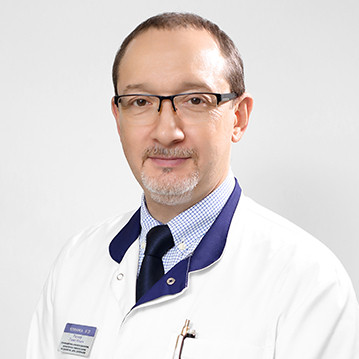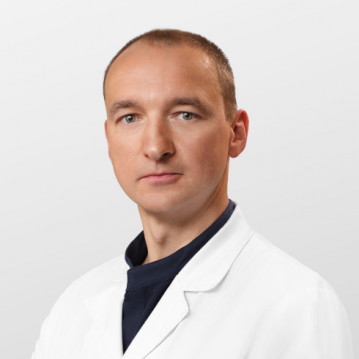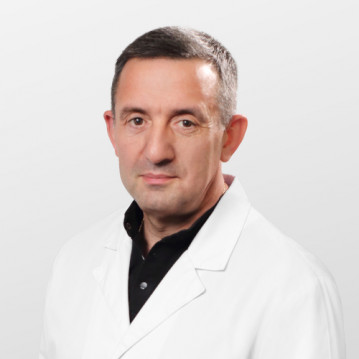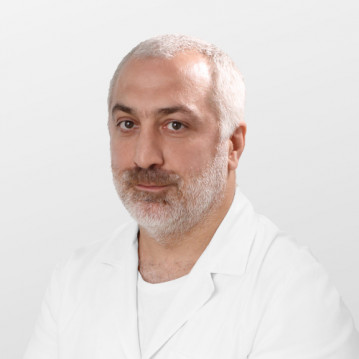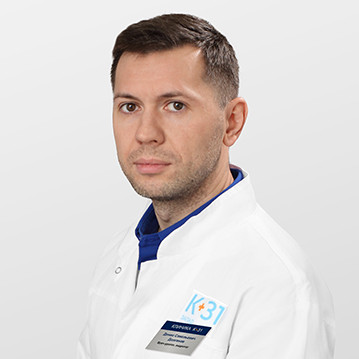A tumor of the ureter is a pathological growth of tissues, which is localized in the region of a tubular organ, connecting the kidneys to the bladder. A neoplasm can consist of both ordinary and modified cells. They appear in people of different sex and age, differ in size, structure and other parameters. Some may be relatively safe, while others pose a serious threat to the health of the patient. If a tumor is suspected ureter in men or women, please contact K+31 in Moscow for help. The clinic employs experienced specialists, who will conduct a high-quality diagnosis and select an effective treatment.
Tumor in the ureter in men and women: what is it?
All neoplasms that occur in the ureter are divided into benign and malignant. The first are formed from intact cells. These tumors can grow to enormous sizes, but they do not spread beyond body where they were found.
Malignant formations are formed from degenerate cells. Pathology is more often diagnosed in men and occurs after age 50. In 70% of cases, the tumor in the ureter is localized in its lower part, 20% - in the middle, 2% - in top. Sometimes several pathological foci are detected in the organ. But predominantly malignant are one-sided.
Oncological disease provokes serious problems with urine output, which leads to hydronephrosis and impaired functioning of the urinary system. As the tumor grows, it “sprouts” into the walls of the organ and passes to nearby tissues. Gradually changed cells spread throughout the body, this happens through the system circulation and lymph flow. As a result, they appear on organs distant from the focus, i.e. metastases are formed.
Cancer of the ureter in men and women: varieties, stages
Tumors are classified by:
- Origin. There are primary or secondary (they are metastases from formations in other organs).
- The number of outbreaks. There are single and multiple forms of the disease.
- Histological structure. Malignant tumors can form from different types of cells, which affects subsequent tactics of therapy and prognosis.
- Prevalence of the cancer process. Local, regional, widespread.
Ureter cancer also has four phases of development:
- First. Malignant cells are localized only within the mucosa.
- Second. The tumor affects the muscle layer of the organ.
- Third. The pathological process spreads to nearby tissues.
- Fourth. Metastases appear in other organs, lymph nodes.
The stage of oncological disease and the type of tumor are determined by the doctor at the diagnostic stage.
Causes of the development of the disease
The mucosa of the bladder and ureter is very sensitive to external influences, chemicals, carcinogens. Therefore, a high risk for the development of this type of cancer is observed in smokers. The more experience nicotine dependence, the higher the likelihood of disease. Also, pathology is often found in hazardous workers. industries that are associated with the oil refining industry, the manufacture of plastics, textiles, paint products.
Other risk factors:
- age;
- presence of chronic urological diseases (including various infections);
- hyperplasia;
- uncontrolled intake of analgesics, diuretics and other drugs;
- The use of poor quality drinking water (especially that contains a large amount of heavy metals).
Genetic predisposition is also called one of the reasons for the development of oncology.
Cancer of the ureter in men: symptoms
Cancer tumors are constantly progressing. In the early stages of their development, they can practically not manifest themselves in any way. But in a certain period, patients seek medical help with complaints of disorders from urinary system.
In almost 50% of patients, the first sign of the disease is the appearance of traces of blood in the urine. First, its quantity minimal, which is associated with minor damage to blood vessels. Patients complain of urine staining in faint pink color, the appearance of inclusions in the form of veins or clots. These symptoms gradually increase until won't be very pronounced.
There are other signs of an oncological process that affects the ureter:
- pulling pain in the lumbar region;
- impaired urination caused by obstruction of the ureter;
- an increase in body temperature to subfebrile indicators (mainly manifests itself in the evening);
- weight loss;
- loss of appetite;
- chronic fatigue;
- drowsiness.
If therapy is not started in a timely manner, complications from the kidneys are possible. Blockage of the urinary tract clot or directly by the tumor itself leads to hydronephrosis. Pathology is accompanied by an increase in the pelvis and kidney calyx. In the future, such a violation leads to atrophy of the organ. Patients may complain of seizures renal colic, which is also associated with blockage of the urinary tract.
